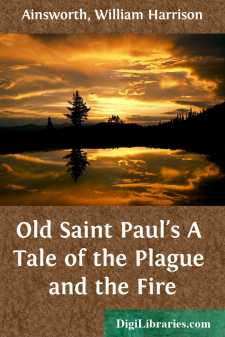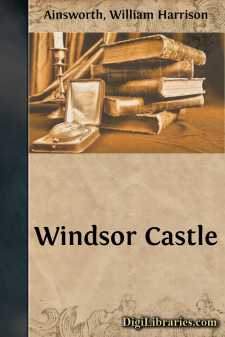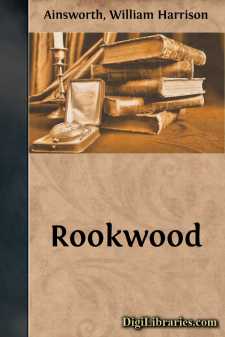Categories
- Antiques & Collectibles 13
- Architecture 36
- Art 48
- Bibles 22
- Biography & Autobiography 813
- Body, Mind & Spirit 142
- Business & Economics 28
- Children's Books 15
- Children's Fiction 12
- Computers 4
- Cooking 94
- Crafts & Hobbies 4
- Drama 346
- Education 46
- Family & Relationships 57
- Fiction 11828
- Games 19
- Gardening 17
- Health & Fitness 34
- History 1377
- House & Home 1
- Humor 147
- Juvenile Fiction 1873
- Juvenile Nonfiction 202
- Language Arts & Disciplines 88
- Law 16
- Literary Collections 686
- Literary Criticism 179
- Mathematics 13
- Medical 41
- Music 40
- Nature 179
- Non-Classifiable 1768
- Performing Arts 7
- Periodicals 1453
- Philosophy 64
- Photography 2
- Poetry 896
- Political Science 203
- Psychology 42
- Reference 154
- Religion 513
- Science 126
- Self-Help 84
- Social Science 81
- Sports & Recreation 34
- Study Aids 3
- Technology & Engineering 59
- Transportation 23
- Travel 463
- True Crime 29
Old Saint Paul's A Tale of the Plague and the Fire
Description:
Excerpt
I.
THE GROCER OF WOOD-STREET AND HIS FAMILY.
One night, at the latter end of April, 1665, the family of a citizen of London carrying on an extensive business as a grocer in Wood-street, Cheapside, were assembled, according to custom, at prayer. The grocer's name was Stephen Bloundel. His family consisted of his wife, three sons, and two daughters. He had, moreover, an apprentice; an elderly female serving as cook; her son, a young man about five-and-twenty, filling the place of porter to the shop and general assistant; and a kitchen-maid. The whole household attended; for the worthy grocer, being a strict observer of his religious duties, as well as a rigid disciplinarian in other respects, suffered no one to be absent, on any plea whatever, except indisposition, from morning and evening devotions; and these were always performed at stated times. In fact, the establishment was conducted with the regularity of clockwork, it being the aim of its master not to pass a single hour of the day unprofitably.
The ordinary prayers gone through, Stephen Bloundel offered up along and fervent supplication to the Most High for protection against the devouring pestilence with which the city was then scourged. He acknowledged that this terrible visitation had been justly brought upon it by the wickedness of its inhabitants; that they deserved their doom, dreadful though it was; that, like the dwellers in Jerusalem before it was given up to ruin and desolation, they "had mocked the messengers of God and despised His word;" that in the language of the prophet, "they had refused to hearken, and pulled away the shoulder, and stopped their ears that they should not hear; yea, had made their heart like an adamant stone, lest they should hear the law and the words which the Lord of Hosts had sent in his spirit by the former prophets." He admitted that great sins require great chastisement, and that the sins of London were enormous; that it was filled with strifes, seditions, heresies, murders, drunkenness, revellings, and every kind of abomination; that the ordinances of God were neglected, and all manner of vice openly practised; that, despite repeated warnings and afflictions less grievous than the present, these vicious practices had been persisted in. All this he humbly acknowledged. But he implored a gracious Providence, in consideration of his few faithful servants, to spare the others yet a little longer, and give them a last chance of repentance and amendment; or, if this could not be, and their utter extirpation was inevitable, that the habitations of the devout might be exempted from the general destruction—might be places of refuge, as Zoar was to Lot. He concluded by earnestly exhorting those around him to keep constant watch upon themselves; not to murmur at God's dealings and dispensations; but so to comport themselves, that "they might be able to stand in the day of wrath, in the day of death, and in the day of judgment." The exhortation produced a powerful effect upon its hearers, and they arose, some with serious, others with terrified looks....







